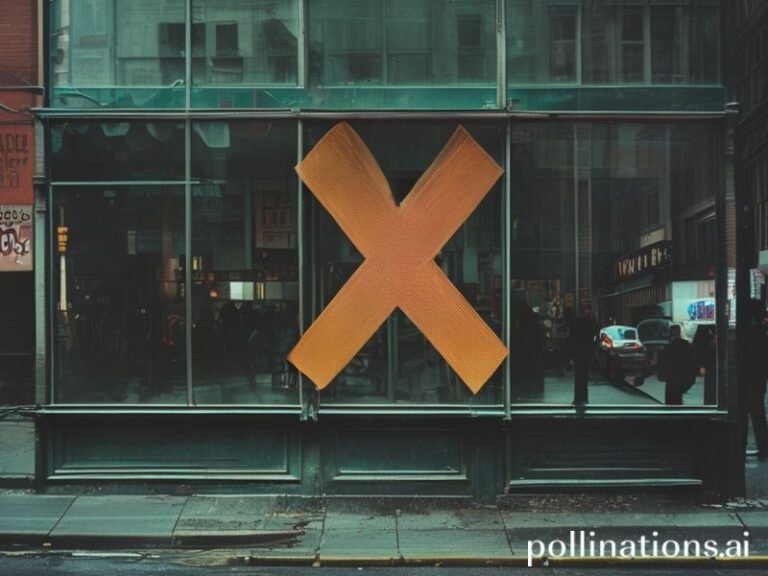Chappell Roan: How a Missouri Farm Girl Became the Latest Geopolitical Glitch
Chappell Roan and the Age of Manufactured Authenticity
A dispatch from the front lines of pop’s new Cold War
By the time Chappell Roan’s “Good Luck, Babe!” cracked the Global Spotify Top 50 last week, diplomats in Brussels were already drafting memos: a drag-tinged Midwestern torch song had somehow become a soft-power bargaining chip. From São Paulo salons to Seoul study-cafés, teenagers in thrift-store corsets are lip-syncing lyrics about compulsory heterosexuality while their parents—oblivious and doom-scrolling—worry about semiconductors and grain futures. Roan, 26, born Kayleigh Amstutz in tiny Willard, Missouri (population 6,400, one stoplight, infinite feed corn), has become the latest proof that the empire no longer exports democracy; it exports aesthetics, and the invoice is settled in data.
The international press, ever hungry for a tidy narrative, has labeled her the “American Kate Bush raised on RuPaul and FFA meetings.” Cynics note that the comparison is geographically impossible—Bush grew up in Kent, Roan in a county where the hottest ticket is still the demolition derby—but in 2024, accuracy is a pre-existing condition the algorithm refuses to cover. What matters is that her Technicolor lamentations travel: a French subtitled version of her Tiny Desk has more views than Macron’s pension-reform explainer, and German TikTokers have repurposed “Red Wine Supernova” into a protest anthem against rising beer prices. Somewhere in the Hague, an intern is adding “campy yodel-pop” to the EU cultural-diplomacy budget.
The economics are delightfully absurd. Republic Records, owned by Universal Music Group, which is majority-held by a French water-utility conglomerate, is bankrolling a tour that starts in Nashville and finishes—because irony still has a passport—at a former Soviet radio factory in Riga. Tickets, priced at €49.90, are being scalped in rubles, yuan, and increasingly dogecoin. Analysts at Goldman Sachs (who, let’s face it, never met a zeitgeist they couldn’t securitize) estimate Roan’s brand could add 0.0003% to U.S. service exports this quarter. Not enough to offset the trade deficit, but sufficient for Treasury Secretary Yellen to nod approvingly during a press gaggle, right before she returns to pretending the debt ceiling is a metaphor.
Soft power aside, the real intrigue is how Roan weaponizes small-town melancholy for global consumption. Her videos splice cornfield glamour with occult drag—think “Children of the Corn” meets “Pose”—a combination that sells in Berlin because it’s safely exotic, and in Jakarta because it looks like a Netflix thumbnail. Cultural critics from Lagos to Lima have pointed out that the same rust-belt decay once weaponized by right-wing populists now soundtracks queer anthems; the only difference is a synth arpeggiator and better eyeliner. History repeats itself, first as tragedy, second as merch drop.
Meanwhile, governments grapple with unintended consequences. Iran’s morality police briefly detained two teens for “homosexual yodeling,” a charge that didn’t exist until last Tuesday. China’s censors muted her lyrics about baroque sexual disappointment, inadvertently creating an instrumental track that’s now the soundtrack to a million Cantonese cooking tutorials. In Russia, state TV insists Roan is a CIA psy-op; the same anchor who once claimed Pokémon was Western mind control now warns that sequins are NATO shrapnel. Somewhere, an underpaid Kremlin propagandist is Googling “what is a rhinestone.”
Back in the heartland, Willard’s mayor gamely tried to capitalize, declaring “Roan Days” and ordering a giant fiberglass wig for the town square—only to learn the supplier was in Guangdong, shipping delays indefinite. Residents, still nursing economic whiplash from NAFTA 1.0, now face the surreal prospect of tour buses full of Belgian influencers seeking the authentic Hardee’s experience. The local Dairy Queen has already added a “Supernova Blizzard”; it tastes like antifreeze and regret.
As the summer festival circuit looms—Glastonbury mud, Fuji Rock humidity, Lollapalooza Berlin’s techno-hedonism—Roan’s camp must decide whether to keep the corn-fed mythology or pivot to something new. A leaked rider requesting “locally sourced glitter” suggests they’re hedging bets. Either way, the spreadsheets will balance, the playlists will refresh, and somewhere in a Moldovan dorm room, a kid will mishear “casual” as “casualty” and feel seen.
In the end, Chappell Roan is less a person than a weather system: a warm front of synthetic sincerity colliding with a cold jet stream of late-capitalist panic. We’ll keep streaming, because the alternative is silence, and silence doesn’t chart. Good luck, babe—you’re going global. Try not to let the world invoice you for the damages.







